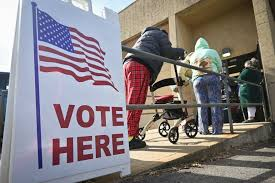|
|
Some Republicans are Already Planning to Repeal Medicare Drug Price Negotiation if They Win in November |
|
Multiple high-ranking Congressional Republicans have told Axios they want to repeal the Inflation Reduction Act's (IRA’s) Medicare drug price negotiations next year if they prevail in the elections.
The law requires the president to negotiate prices for some drugs, and last month the first round of talks yielded agreements to lower the list prices of 10 widely used drugs. Vice President Kamala Harris has called for expanding the negotiations and making more drugs subject to price talks if she's elected.
Rep. Buddy Carter (R-GA) said the IRA drug pricing provisions are "the worst legislation I've ever witnessed in 10 years in Congress and 10 years in the state legislature" and he "absolutely" wants to repeal them. And Sen. Thom Tillis (R-NC) said he "100%" wants to repeal the negotiation provisions, while other drug pricing sections of the law would need to be evaluated based on whether they have "a positive impact on business."
Former President Donald Trump claimed to be for drug price negotiations while in office. According to Axios, “he could still be open to repealing the IRA drug price measures, and his campaign isn't elaborating.”
|
|
Graves-Spanberger Discharge Petition Reaches 218 Signatures, Enough to Force U.S. House Vote on Bipartisan Bill to Eliminate WEP & GPO |
|
Last week, Representatives Garret Graves (R-LA) and Abigail Spanberger (D-VA) filed a discharge petition to force a House vote on H.R. 82, the Social Security Fairness Act, which would eliminate both the Windfall Elimination Provision (WEP) and the Government Pension Offset (GPO). These two provisions unfairly reduce or eliminate earned Social Security benefits for approximately 2.8 million Americans who’ve devoted much of their careers to public service — including police officers, firefighters, educators, and federal, state, and local government employees. The GPO reduces Social Security benefits for the spouse or survivor of a Social Security beneficiary who worked for a period of time in a job not covered by the Social Security program.
On Thursday Reps. Graves and Spanberger announced that their discharge petition for the bipartisan legislation has hit 218 signatures — the number required to force a vote in the U.S. House.
Now that the discharge petition has 218 signatures, the petition will sit on the U.S. House Calendar for seven legislative days. After that period, Reps. Graves and Spanberger will request that the Speaker schedule it for a vote before the full U.S. House of Representatives. According to U.S. House rules, a vote will be scheduled within two legislative days. Click here to learn more about the discharge procedure in the U.S. House. Reps. Graves and Spanberger hosted a press conference alongside representatives of retired police officers, firefighters, letter carriers, government employees, and educators from across the country on Thursday. Click here to watch. |
|
Early Voting Gets Under Way in Some States |
|
Voters in some of the seven battleground states that are expected to decide the November 5 presidential election will start casting ballots as soon as this week. Municipalities in Wisconsin were required to send out “mail ballots” by September 19. |
|
|
The vast majority of voters across the country will be able to cast their votes early in person or by mail in most states if that is their preference. An eligible reason to vote by mail is needed only in Alabama, Mississippi, New Hampshire, and West |
|
Virginia, where an early voting option is not available to all voters.
Americans have seen a dramatic expansion in their ability to vote early in person and by mail in recent years. The Center for Election Innovation and Research noted that in 2000, just 40% of voters had access to early voting, either in person or by mail. Now, 97% have at least one option to vote before Election Day. To confirm your registration status and learn more about election dates, deadlines and voting rules in your state, go to www.vote.org.
“The Alliance urges our members to lock in your vote early, if possible,” said Joseph Peters, Jr., Secretary-Treasurer of the Alliance. “Make a plan to vote and return your ballot early to avoid mail delays and ensure there are no last-minute problems.” |
|
KFF Health News: Historic Numbers of Americans Live by Themselves as They Age By Judith Graham |
|
Gerri Norington, 78, never wanted to be on her own as she grew old.
But her first marriage ended in divorce, and her second husband died more than 30 years ago. When a five-year relationship came to a close in 2006, she found herself alone — a situation that has lasted since. |
|
|
“I miss having a companion who I can talk to and ask ‘How was your day?’ or ‘What do you think of what’s going on in the world?’” said Norington, who lives in an apartment building for seniors on the South Side of Chicago. |
|
Gerri Norington is part of a large but often overlooked group: the more than 16 million Americans living alone while growing old. Their experiences have not been well studied. (TAYLOR GLASCOCK FOR KFF HEALTH NEWS) |
|
Although she has a loving daughter in the city, “I don’t want to be a burden to her,” she said.
Norington is part of a large but often overlooked group: the more than 16 million Americans living alone while growing old. Surprisingly little is known about their experiences.
This slice of the older population has significant health issues: Nearly 4 in 10 seniors living alone have vision or hearing loss, difficulty caring for themselves and living independently, problems with cognition, or other disabilities, according to a KFF analysis of 2022 census data.
|
|
Alliance Celebrates Hispanic Heritage Month |
|
Alliance members are joining the AFL-CIO in marking Hispanic Heritage Month, which runs from September 15 - October 15, 2024.
The White House marked the occasion with an event on Wednesday. In his remarks, President Biden noted that more Hispanics have health insurance than ever before.
Social Security is particularly important for the Hispanic community, according to the Centers for Disease Control and Prevention (CDC). Because Hispanic-Americans have higher life expectancies once they reach ages 65 and 75 than the population at large, they are likely to rely on their earned benefits for longer.
|
|
Thanks for reading. Every day, we're fighting to lower prescription drug prices and protect retirees' earned benefits and health care. But we can't do it without your help. Please support our work by donating below. |
|
|
|
|
Alliance for Retired Americans | 815 16th Street, NW | Washington, DC 20006 | www.retiredamericans.org



